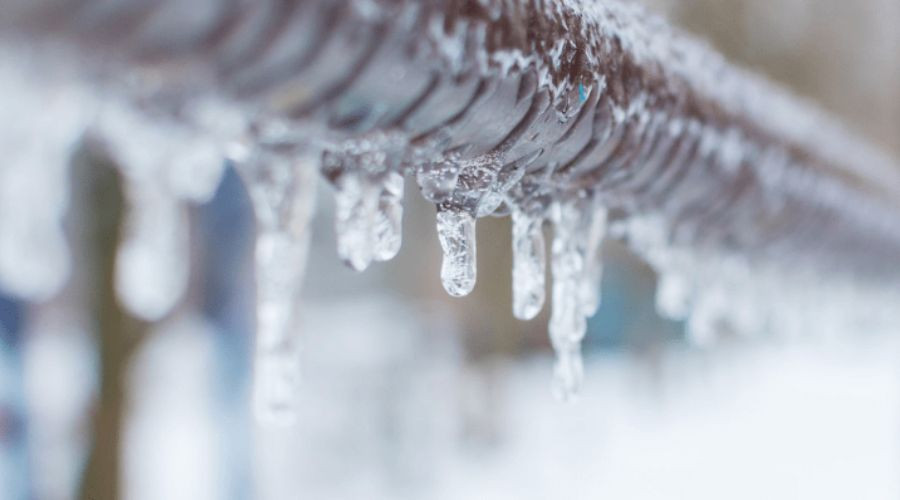Watch Out for These Common Signs of Frozen Pipes in Your Home
A frozen pipe is one of those plumbing issues that every homeowner dreads. That’s because, often, frozen pipes become burst pipes. The result can be a massive headache, loads of wasted water, and costly water damage - and the longer the problem goes undetected, the worse the damage will be. That’s why every homeowner should know how to spot the signs of a frozen pipe as early as possible. This article will share three ways to tell when a home’s water or sewage pipes are frozen.
Weak Water Pressure
 Low water pressure is one of the most common and easily noticeable signs of pipes freezing. As the water in a supply line freezes, the inside of the pipe will effectively get smaller and smaller, constricting the flow of water to sink faucets and other fixtures. Eventually, the line can become blocked entirely with ice, and no water will make it to the taps.
Low water pressure is one of the most common and easily noticeable signs of pipes freezing. As the water in a supply line freezes, the inside of the pipe will effectively get smaller and smaller, constricting the flow of water to sink faucets and other fixtures. Eventually, the line can become blocked entirely with ice, and no water will make it to the taps.
As this happens, the water upstream of the frozen section will become overpressurized, which can cause a frozen pipe to burst. It’s important to note that if little or no water is coming out of one or more faucets in the home, it could mean that a pipe has already ruptured or burst, so homeowners who notice this issue should call a plumber immediately.
Ice or Frost on Visible Pipes
Perhaps the most obvious indicator of a frozen pipe is ice or frost on pipes. This occurs when condensation forms on a cold line and freezes on the surface. Not only does this indicate that the pipe’s internal temperature is too low, but as more and more condensation forms and freezes on the pipe, the more it will exacerbate the problem.
Of course, not all of the home’s water pipes are easy to inspect visually - many are behind walls and pipe insulation. However, the visible pipes are also the most likely to freeze because they’re exposed to the elements. This includes pipes in uninsulated parts of the house, such as attics, crawlspaces, and unfinished basements. If homeowners spot frost or ice on exposed pipes, they can turn on the faucets to try and prevent the water inside from freezing entirely.
Sewage Smell in the Home
 Water supply pipes aren’t the only part of a home plumbing system that can freeze. Drainage and sewer lines can also become frozen in certain circumstances. One common indicator of this is if the kitchen or bathroom smells like sewage. There are a few possible reasons why this occurs.
Water supply pipes aren’t the only part of a home plumbing system that can freeze. Drainage and sewer lines can also become frozen in certain circumstances. One common indicator of this is if the kitchen or bathroom smells like sewage. There are a few possible reasons why this occurs.
Ice could be preventing wastewater from draining, causing sewage to back up into the home’s drain lines. Likewise, sewer gases could become trapped in the drainage system, and the growing pressure may be causing these fumes to bubble up through the P-traps (curved sections of pipe filled with water to form a barrier against sewer gases). Or a sewage pipe may have burst due to a freeze and is leaking wastewater. The smell of sewage in the home is an unpleasant and potentially health-threatening problem, so it’s best to contact a reliable plumber to resolve this issue quickly!
About Jim Wagner Plumbing, Inc.
Jim Wagner Plumbing, Inc. is a third-generation plumber with decades of experience serving Lombard, IL, and the surrounding areas. They provide upfront pricing, on-time arrival, and honest advice. Call them today for emergency plumbing services in Lombard, IL.

































